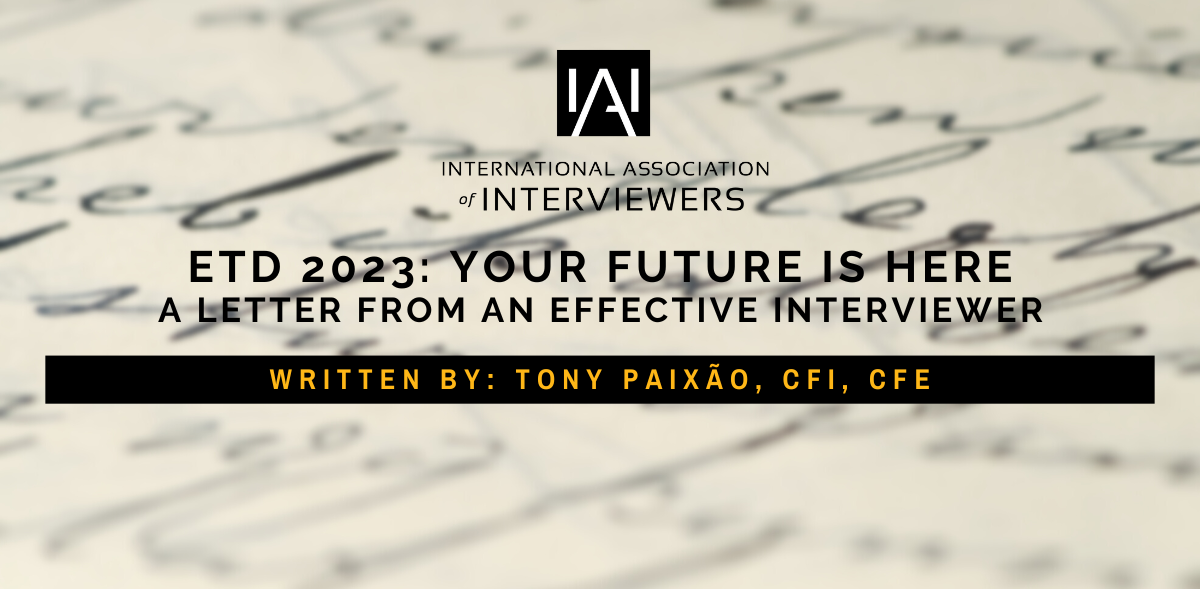We’re human and we all make mistakes. It’s inevitable. At some point in your investigative career you’ll find yourself making a mistake during the interview process. Many times the person you are interviewing will be unaware of the mistake, but it’s always a good idea to keep a mental record of your “interview bloopers” to prepare you for the occasional situation that will require you to recover and overcome from an unexpected error.
At Wicklander-Zulawski (WZ), we are consistently reviewing our interviews or interrogations and critiquing each other in an effort to learn from our mistakes. In the spirit of embarrassing myself, while hoping to educate others, I’ve compiled some “bloopers” or mistakes made during my own interviews.
Do Not Disturb
You have spent an extensive amount of time setting the interview room up for optimal success, or at least you think you have. About 10 minutes into the interview you realize you forgot to unplug the phone, put a sign on the door, or take your “Practical Aspects of Interrogation” textbook off of the desk.
I’ve experienced interruptions more often than I’d like to admit – but there is a recent example that comes to mind immediately. While changing the subject’s perspective, an integral step in the WZ Method, another employee decided to walk into the office and interrupt our otherwise productive meeting. It wasn’t until after the interview that I discovered that the subject who interrupted us had actually played an active role in the embezzlement scheme I was discussing with my primary subject. Unfortunately for him, he became my next interview subject.
Lesson learned – Put a sign on the door
Don’t I Know You From Somewhere?
Investigators spend most of their time and energy on the investigative process that leads them up to the interview. During this process, multiple things are happening which could include interviews of witnesses, collection and examination of evidence, and research into motives and rationales. Even when an investigator feels as if they’ve eliminated any loophole and have a strong strategy for the interview – sometimes the simplest of things may have been overlooked.
A few years ago I was interviewing a subject who was alleged to be defrauding a company through the falsification of some documents. As we progressed through establishing her baseline and then developing rapport I started to feel an awkward uneasiness on her part. I thought it was just anxiety caused by being in the conversation, until I realized it was much simpler than that. I started to explain that I wanted to share with her some information about “who I am, and what I do”. At that moment she proclaimed, “You don’t have to do that”. Before I could muster up a response, she stated – “You explained all of that the last time we had one of these talks”. Yes, I interviewed her about a year prior to this and completely forgot, at least she was kind enough to redirect me.
Lesson learned – Have a plan “B”
Line, Please?
During an interview or an interrogation, most investigators utilize a strategic and sometimes scripted but fluid approach. Most good interrogators are excellent communicators and have the ability to keep a conversation flowing while having a response to anything tossed at them. Many interviews do not go as planned and the investigator is forced to react on the fly, while not going down a path that results in a negative outcome. This can be a difficult task, but one that separates good interrogators from the great ones.
I believe to possess the wit and ability to successfully manage a conversation or interrogation while reacting to denials, excuses or objections. However, on a few occasions I’ve had those brief moments of silence that seem to feel like forever while I process my next thought. Often times this happens when the interviewer has memorized their technique so well that they feel as if they don’t have to think about it when delivering – this poses some huge problems. I remember one interview specifically where I was telling a rationalization story about peer pressure that I have used countless times. Unfortunately, because I told the story so many times I started to drift off a bit while delivering this piece of information to the subject. I’m sure I was thinking about something important, like who to start in my fantasy line-up or what to have for dinner that night, but this is the wrong move. Because of my lack of focus, the subject asked me a question during the rationalization and I was completely blank on what story I was even telling. This caused a few moments of awkwardness, a shot to my credibility and another lesson learned to deposit in my experience bank.
Lesson learned – Keep your head in the game
If you ask any experienced interview if they have ever made a mistake during the interrogation process and they say “no” – either they really aren’t experienced or they are lying. Mistakes can be as simple as the ones I’ve mentioned above, or several others that I’ve made including; forgetting to ask the subject to turn their phone off which resulted in the interview being recorded, calling the subject by the wrong name after a stretch of multiple interviews or closing out the interview and realizing on the way home that there was more you forgot to ask about.
Overall, mistakes or “bloopers” are how we learn and improve. Continue to reflect back on your investigations, solicit feedback and be open to criticism. Most importantly, act like you have been there before. I have yet to have a subject tell me that I’m doing the interview wrong or out of order – allow yourself to be in control of the conversation while still adapting to the ever changing subject in front of you.
David Thompson, CFI, is the President of Wicklander-Zulawski & Associates, Inc. (WZ). He is responsible for the day-to-day operations of WZ, as well as strategic planning and the evolution of interview and interrogation content. David has also served as the Director of Investigations giving him the opportunity to manage a variety of cases while conducting interviews and consulting on investigations ranging from theft and fraud to sexual harassment and homicide. As a speaker for WZ, David has created customized training programs, presented at seminars, hosted a variety of webinars as well as conducted live broadcasts of training.




